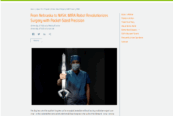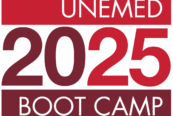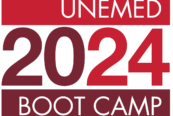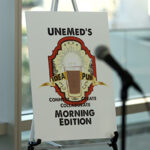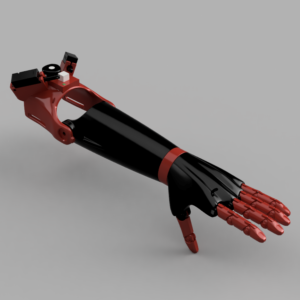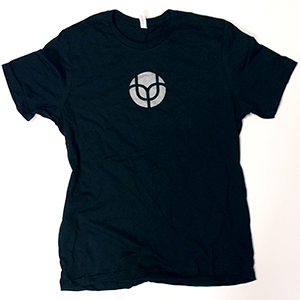by Bill Hadley, UNeMed | July 3, 2012
On December 12, 1980, Congress enacted legislature commonly known as the Bayh-Dole Act. This legislature contributed to a major change in university facilitated research and development. Under the Bayh-Dole Act, universities may now retain title to inventions created under federally-funded research programs. Based on this policy, the act has helped generate a significant increase in the amount of patents and licenses owned by U.S. research universities. (See, McCowery, David C., et al. The Effects of the Bayh-Dole Act on U.S. University Research…, pp25-29).
Accordingly, after the passing of the Bayh-Dole Act, universities’ policies regarding intellectual property began to change. For example, universities began requiring researchers to report inventions created through university research programs in order to protect valuable intellectual property (See, UNMC Policy No: 8000(7)(H)). Moreover, with the increase in the number of patents held by universities, many institutions were forced to update their procedures for protecting their intellectual property rights.
One method of protecting intellectual property is the confidential disclosure agreement (CDA), also known as a nondisclosure agreement (NDA) or secrecy agreement. The CDA protects the exchange of confidential information that is not yet ready for patenting or publication. This protection is invaluable since unprotected disclosure may result in a loss of U.S. and foreign patent rights.
As discussed previously, unprotected disclosure of university research and development may bar patentability under United States Patent Law. To help protect U.S. and foreign intellectual property rights, researchers should be careful about discussing the details of their research.
When discussing research that is not publicly known, researchers should consult with UNeMed and use the CDA to help protect against disclosures that may bar patentability. By using a CDA researchers can show that any disclosure that was made to a party to the agreement was not meant to be public, but was, in fact, confidential.
How can you, as a researcher, benefit from a CDA?
CDAs can be very useful in furthering research and development. The confidentiality provided by CDAs allows the parties to the agreement to openly share information concerning the research project, even if the information is not yet published or patented.
This open exchange increases the progression of the research project. While the project progresses, the possibility for finding scientific breakthroughs and marketable intellectual property also increases.
The progression of research and development can mean not only an increase in knowledge, but also an increase in University revenue. This is because with more marketable intellectual property discovered, more licensing agreements will be formed. From those licensing agreements, royalties will be paid and UNMC researchers generally receive a portion of the net royalties. Royalty distributions and licensing agreements will be the topic of discussion in future posts.
Steps for entering into a CDA
There are usually three different scenarios when a CDA will be used. First, when another organization wants to receive confidential information from UNMC; second, when UNMC wants to receive confidential information from another organization; and third, when UNMC and another organization collectively want to share confidential information with each other. The following generally outlines the steps for each scenario:
- A UNMC researcher plans to enter into discussions about research being conducted at UNMC with another organization (because that organization needs information from UNMC, UNMC needs information from that organization, or they both need information from the other).
- The UNMC researcher should not disclose any confidential information, but should obtain that organization’s contact information as well as a description of the information to be discussed (if the need for information lies with UNMC alone, the researcher can request the organization’s standard CDA as well).
- The UNMC researcher should contact Jack Mayfield, Contract Specialist at UNeMed, jack.mayfield@unmc.edu, and provide the organization’s contact information and the description of information to be discussed (and the organization’s standard CDA, if applicable. See steps 2 &4).
- UNeMed will then send our standard CDA for the organization’s review (unless it is the case that UNMC unilaterally needs information from the other organization; in that case, the other organization usually provides their standard CDA).
- The UNMC and the organization accept the terms as they are, or they enter into negotiations to reach mutually agreeable terms.
- UNeMed sends the CDA to the UNMC researcher to read and review for acknowledgment of special conditions. The UNMC researcher should sign the CDA and return a signed copy to UNeMed (via email or campus mail).
- UNeMed then signs the CDA and sends a copy of the fully executed agreement to both the researcher and the other organization. The UNMC researcher may then discuss the confidential research information, as outlined in the CDA, with the other organization.
For questions regarding CDAs or any of the above procedures, contact: Jack Mayfield, Contract Specialist at UNeMed, jack.mayfield@unmc.edu.

